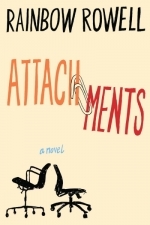
My Secret Folder™
Lifestyle and Utilities
App
NOTE: If you are having issues with crashing go to your device settings and then the Privacy area...
Now Then Pro - Time Tracker and Timesheet Management
Productivity and Business
App
Use Now Then to record what you’re doing as you do it, and discover where your time really goes. ...

FirstMet Dating: Meet Singles
Dating, Lifestyle and Social Networking
App
MEETING REAL PEOPLE HAS NEVER BEEN EASIER! FirstMet Dating (formerly AYI) is packed with great...

Woo - Dating App
Dating, Lifestyle and Social Networking
App
Woo connects you to interesting people every day based on your interests and lifestyle. We’ve...

Timeline Cover Photo Maker Free - Design and create your own custom Facebook profile page covers that reflects your personality!
Photo & Video and Social Networking
App
The App Store's most popular Cover Photo Making App for your Timeline now has a FREE version! ...
Super Self-Confidence Hypnosis Subliminal Affirmation HD Video App by Glenn Harrold
Lifestyle and Health & Fitness
App
This superb high quality subliminal hypnosis video by best selling hypnotherapist Glenn Harrold,...

Naughty Date-Hook Up Adult Dating App & Chat
Dating and Social Networking
App
Naughty Date, one of the most popular adult dating apps, is a collection of hot girls and attractive...

Travelr - Sugar Daddy Travel
Travel and Social Networking
App
Welcome to Travelr - One of the best Tinder way sugar daddy travel dating app for singles which gave...

Trail Wallet Travel Budget App
Travel and Finance
App
LESS TRACKING, MORE TRAVELLING Trail Wallet is free for the first 25 items, with an In App Purchase...
Kaysee Hood (83 KP) rated Attachments in Books
Nov 16, 2017
1. This is Rainbow Rowell's first published novel, so of course for some it doesn't hold the magic like Eleanor & Park. Keep in mind many first books never hold against later published works, but are still good or why would the author be allowed to continue?
2. Even though it was published in 2011, it is based in 1999/2000 for plot reasons as to why Lincoln would have his job. This may offset some readers who might not realize how different 1999 is to 2017 Internet use wise for jobs.
3. The lack of reading into who and why the characters are as they are. In a way, it is the adult version of Fangirl, expect the roles are flipped a tad bit.
Anyway, I loved Attachments because it stayed true to Rowell's style, yet it felt raw compared to how she writes now. There is the unconventional love story of a man falling in love with a woman through the e-mails he reads as part of his job to ensure people are working and not nonsense while on the job. There's characters of all sorts with real world problems and real life flaws. There are topics covered of overbearing mothers and mothers who are too cruel both because of their own life. There is men who never want to be tied down, yet one does due to advice and the right woman. The book covers pieces life without taking from the plot whatsoever.
Lincoln O'Neil is a 28-year-old who could have been a successful man with a normal day shift job if a break up had not left him shattered nine years before. Maybe also if his mother had not coddled him, even though she clearly meant well as it is clear him and his sister, Eve, might have been her whole life. Yet we would not have the awkward, shy man working a the swing shift in the IT office as a "security officer" fixing computers in his spare time when he isn't reading through e-mails that come up flagged in the Webfence program. Apparently the security part was ensuring no one at the newspaper office was using the Internet to look at porn, gamble, or idle chit chat instead of working. Not quite was Lincoln had pictured and he doesn't enjoy reading people's exchanges, but the money is good and will grant him the chance to move out his mom's sooner rather than later.
His mundane routine and nothingness during his shift is filled with some enjoyment as Lincoln reads the e-mails flagged from Beth Fremont and Jennifer Scribner-Snyder. There is nothing harmful. Innocent discussions of water cooler talk, life, relationships, and gossip. As much as he knows it is wrong to continue to read their messages about their lives without flagging them as he would anyone else Lincoln cannot help but to get a kick out of the e-mails.
However it soon becomes apparent Lincoln has fallen for Beth despite the fact he has no idea what she looks like or who is she outside of work. Not to mention she has a boyfriend, Chris, who even though she may rant about to Jennifer, she obviously has not intent on breaking ties with. Not for someone like Lincoln anyway. So he spends his time in turmoil trying to decide if a new job is in order, going back to college, or finding a woman to focus his attention on (which are the very things he tries to do). He even tries to ignore the e-mails, yet can't. He cannot help, but feel for Jennifer's worry over having a baby even though her husband wants one. He cannot help, but captivated by their friendship. He cannot help his feelings for Beth for who she is.
It doesn't help Beth has spotted him labeling him as "A Cute Guy" when he never realized she was around. It is like a game of cat and mouse between them then. Beth still unaware he is reading her e-mails. Lincoln unaware of how often she is close to him even when she is going out of her way to find him.
Thus a budding romance is born. But how much of a romance can it be when Beth has Chris and Lincoln can barely look a woman in the eyes?

